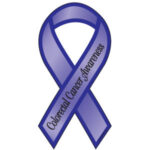 Researchers at Simmons College, in Boston compared the Alternate Mediterranean Diet (aMed) and the Dietary Approaches to Stop Hypertension (DASH) diet in middle-aged adults.
Researchers at Simmons College, in Boston compared the Alternate Mediterranean Diet (aMed) and the Dietary Approaches to Stop Hypertension (DASH) diet in middle-aged adults.
First, the details.
- 87,256 adult women and 45,490 adult men without a history of cancer were followed up to 26 years.
- The aMed and DASH scores were calculated for each participant by using dietary information that was assessed up to 9 times during follow-up.
- The aMed diet score includes only whole grains, separates fruit and nuts into 2 groups, eliminated dairy products, deducts points only for red and processed meats, and allows equal amounts of alcohol for men and women.
- Relative risks for colorectal cancer were computed and adjusted for potential confounding factors.
And, the results.
- There were 1432 cases of colorectal cancer among women and 1032 cases in men.
- Comparing the highest intake to lowest intake of the DASH diet, there was a significant increased risk of colorectal cancer and colon cancer, with the lowest intake.
- There was no association with rectal cancer when comparing highest to lowest DASH intake.
- No association was observed with the aMed score.
The bottom line?
The authors concluded, “Adherence to the DASH diet (which involves higher intakes of whole grains, fruit, and vegetables; moderate amounts of low-fat dairy; and lower amounts of red or processed meats, desserts, and sweetened beverages) was associated with a lower risk of colorectal cancer.”
That’s good news.
More about the DASH diet is here.
11/21/10 18:36 JR